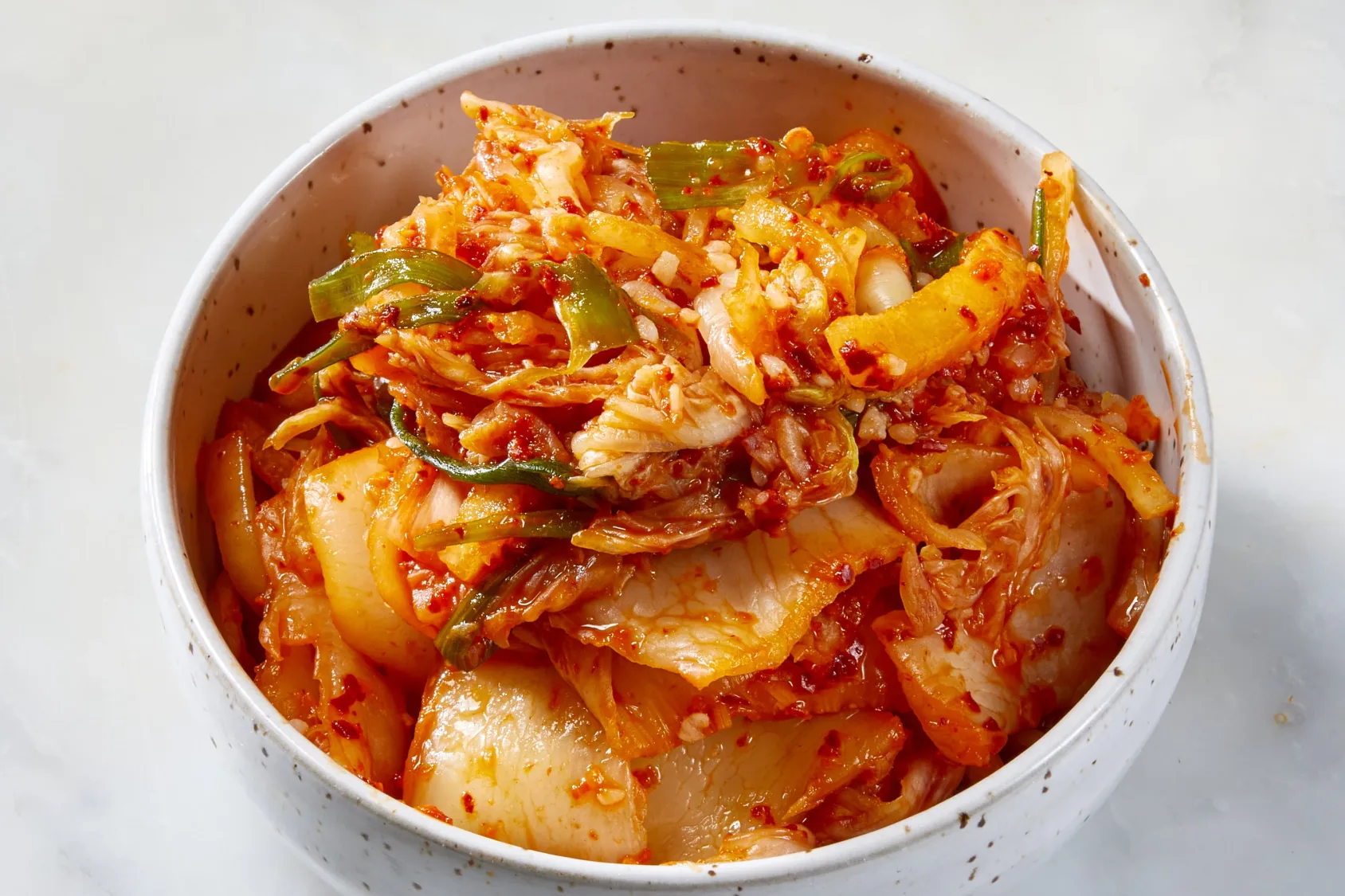
Kimchi
Traditional fermented vegetables with chili and seasonings.
Ingredients
- •Napa cabbage
- •Korean red pepper
- •Garlic
- •Ginger
- •Fish sauce
Instructions
Prepare Cabbage
Salt and rinse cabbage
Season
Mix with spice paste and ferment
Kimchi is a traditional Korean dish made from fermented vegetables, most commonly napa cabbage and Korean radishes, with a variety of seasonings including chili powder, garlic, ginger, and fish sauce. It is known for its spicy and tangy flavor, and it is a staple in Korean cuisine.
The history of kimchi dates back thousands of years, with the earliest references found in ancient Korean texts. Originally, kimchi was a way to preserve vegetables during the long winter months. Over time, the recipe evolved, and the introduction of chili peppers in the 16th century gave kimchi its distinctive spicy kick.
To make kimchi, start by salting and rinsing the cabbage to draw out moisture and create a crisp texture. Next, prepare a spice paste made from Korean red pepper flakes, garlic, ginger, and fish sauce. Mix the cabbage with the spice paste, ensuring that each piece is thoroughly coated. Pack the mixture into a jar and let it ferment at room temperature for a few days before transferring it to the refrigerator. The fermentation process can take anywhere from a few days to several weeks, depending on your taste preference.
There are many variations of kimchi, and you can customize it to suit your taste. Some people like to add other vegetables such as carrots, radishes, or green onions. You can also adjust the level of spiciness by varying the amount of chili powder used.
In Korea, kimchi is served with almost every meal, often as a side dish or banchan. It can also be used as an ingredient in other dishes such as kimchi stew (kimchi jjigae), kimchi pancakes (kimchi jeon), and kimchi fried rice (kimchi bokkeumbap).
Kimchi is not only delicious but also packed with health benefits. It is rich in vitamins A, B, and C, and the fermentation process creates beneficial probiotics that promote gut health. However, kimchi can be high in sodium, so it should be consumed in moderation, especially for those with high blood pressure.
